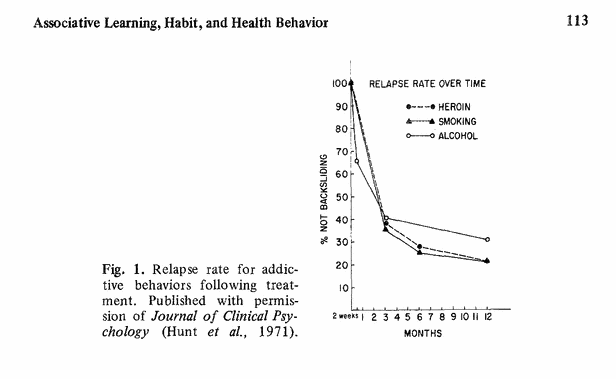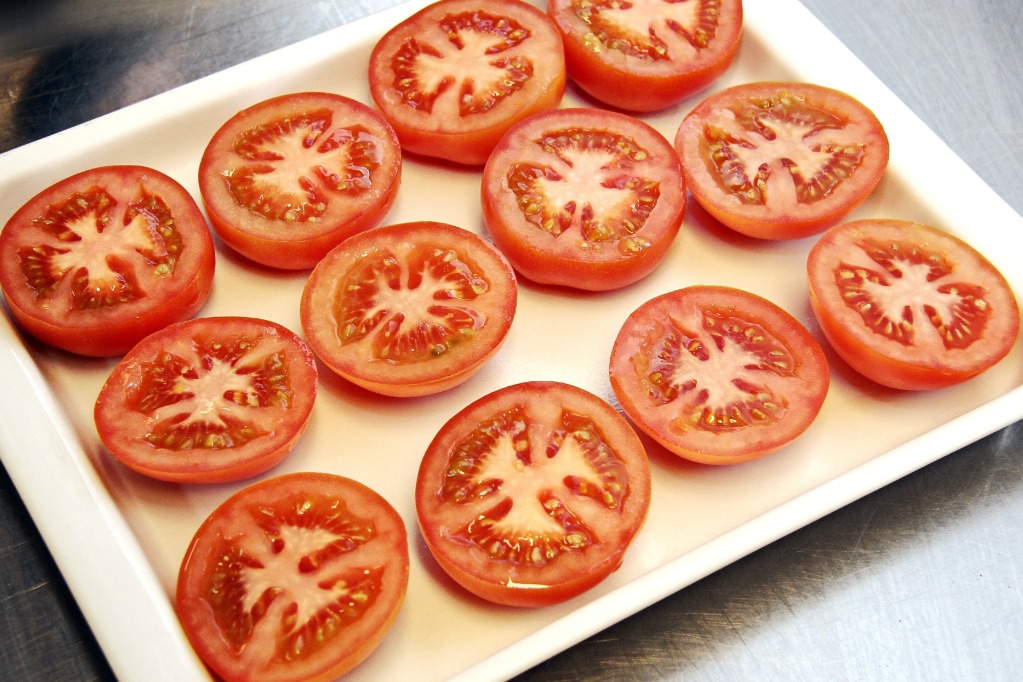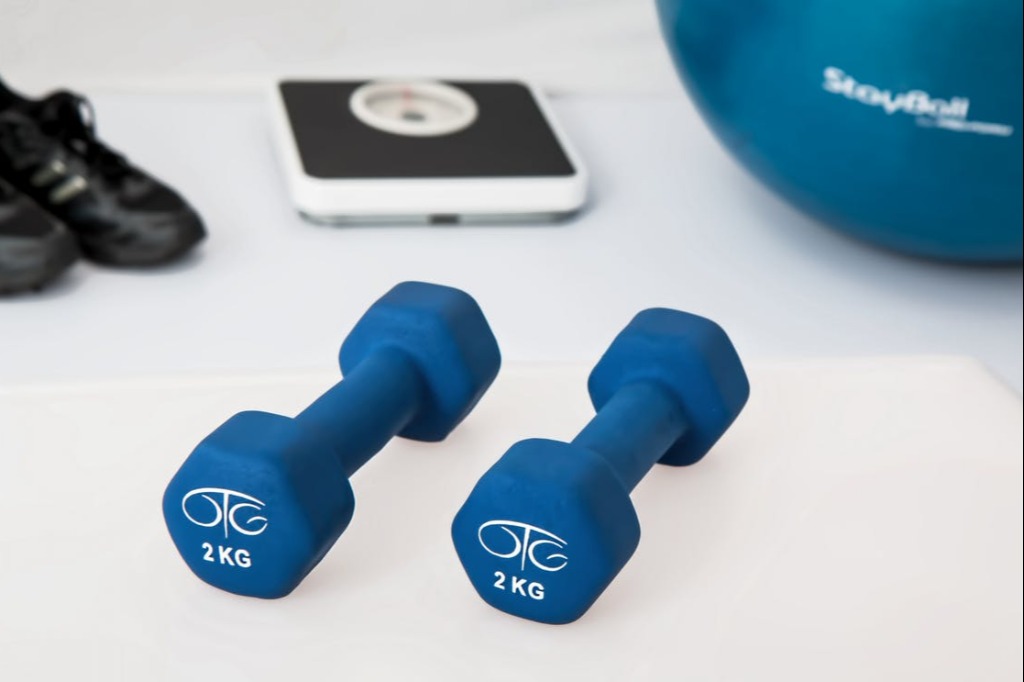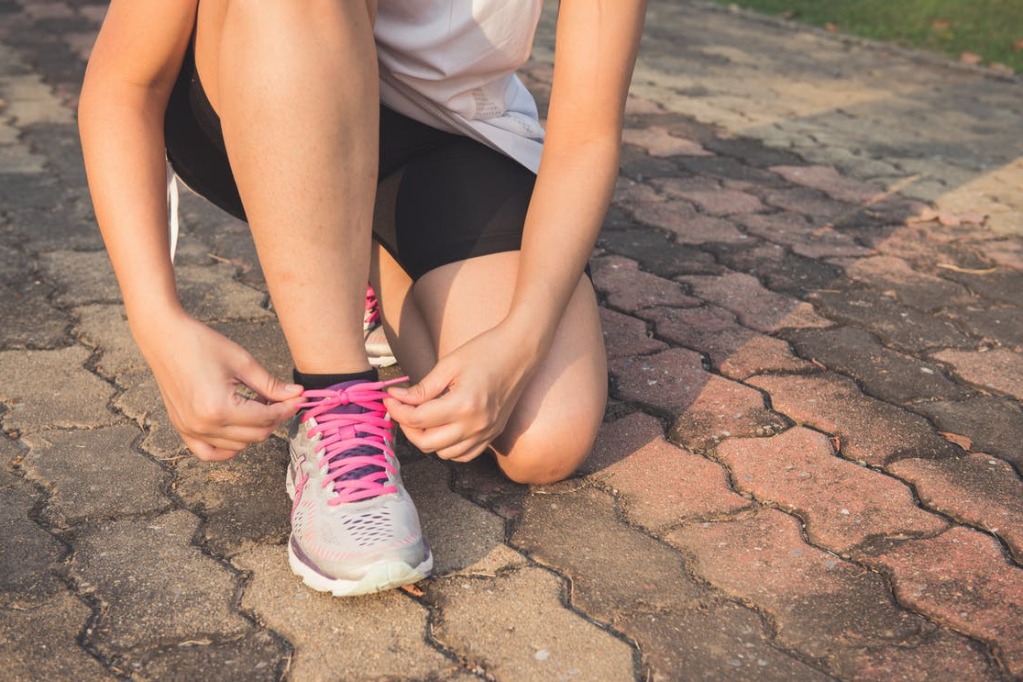
41 Unique Insights on Creating Healthy Habits: Backed by Science

Let’s face it: you’ve been trying to stick with a few health habits like eating better, going to the gym, and de-stressing, but it hasn’t been pretty.
Things go well at the start, you get off track, then you wonder “ehh.. should I even bother starting again?”
Well, there’s all kinds of stuff you need to know about habits, if you really want them to stick.
Here are 41 science-backed ways to start (and keep) habits.
How to Create & Stick With Healthy Habits: 41 Insights Backed by Science
1. If you choose a time and place every single day to do the habit, you’re more likely to do it.
2. We often get sidetracked on the weekends because our cues to do certain habits (time of the day, location, etc. like being at the office) are different.
3. The more you repeat something, the more it becomes a habit (duh), so pay close attention especially to the invisible things (like how you think).
4. Most of our decisions are made from unconscious habits, rather than conscious logical decision making.
5. If you show up with a more positive attitude, you’re more likely to successfully form the habit (versus not being in a positive, optimistic mindset).
6. Habits help offset motivational slumps, and make you more likely to do the stuff you said you’d do, even if you don’t feel like it today.
7. Participants in one study who focused on a habit based (versus goal-based) approach to healthy eating and exercise saw better results over 8 weeks than those who didn’t.
8. It’s unlikely that you can actually create a habit for not doing something (for example, not eating Frosted Flakes for breakfast).
9. One study done on having parents improve their feeding of their young children found that focusing on a habit-based training program had a significant increase in the amount of vegetables, healthy snacks, and water compared to the control group.
10. If you associate one health habit with one time and one location, you’re more likely to anchor it in (versus multiple habits, or giving yourself multiple options).
11. Specifying – ahead of time – how many times you plan on doing the habit each day or week makes you more likely to be successful with the habit.
12. Replacing a bad habit with a new one (with the same location, time, place or cue) is often easier than just “breaking” a bad habit.
13. Event-based cues (like a certain mealtime) are better for habit formation, because if you choose cues based on time, it requires you to spend a lot of time monitoring time.
14. The more specific a habit is, the easier it is to actually make it stick. (Think: I’m going to eat chicken, brown rice, and a salad every Monday and Wednesday at 9 pm, rather than “I’m going to have a home cooked meal a few times a week.”)
15. Don’t set up habits around certain times of the day (random times you set up to create habits); instead, base them around events (waking up, going to sleep, arriving at work, arriving at home, eating a meal, etc.)
16. Habits naturally decay in the long term if you don’t keep working on them – they become automatic after a while, but usually require some kind of low level effort to maintain them.
17. Generally, habits need some kind of cue (see above) to trigger them.
18. One study done on exercise habits found that four times per week was the minimum required to establish the habit of exercising.
19. One of (many) reasons why sugar is so addictive is because the habit and addiction is biological, and isn’t just a matter of willpower and effort.
20. Habits accurately predict the future – one study found that past habits of self criticism accurately predicted future self esteem, anxiety and depression issues.
21. Our inner, self image more accurately predicts our future behavior (or bad habits/relapsing) more than anything else, like this study mentioned on Anorexics that had an extremely high relapse rate after treatment, and were unnaturally resistant to improving.
22. Habits accurately predict most of our positive and negative behaviors – even things we think are conscious, like how much alcohol we drink when we sit down to eat.
23. Regular behaviors become habits because the mind “views” them as cognitive shortcuts, that is, you can do the same thing in less time, with less processing power. This is why continuing to the point of automaticity is so important for good, healthy habits.
24. One of the greatest predictors of whether or not something will really become a habit is whether or not you do it consistently in the same familiar context (situation, place, etc.)
25. Your relapse rate goes down over time, and is the highest when you start – so don’t give up!

26. Going on vacation often messes up our habits because of the lack of contextual cues – if you want to still exercise for example, link it to an event (like before-breakfast, right when you wake up, etc.)
27. Here’s a way to think about linking your habits together (using contextual clues). Washing your hands after using the toilet; flossing after brushing your teeth; or putting on your seatbelt after turning on the car. What habits can you pair up?
28. Focusing on a habit-based routine for being healthy (or really achieving any good) is so valuable because habits often persist long after motivation or interest has gone away.
20. In one study, where participants were told to pick simple habits and linked them to one cue (e.g. eating fruit after breakfast), the automaticity of the habit kept increasing until roughly 66 days – at which point it seemed to stabilize.
30. The automaticity of habits (aka, how strong the habit is) tends to increase more quickly for simple actions (drinking water) rather than more complex, time intensive ones (like doing 50 situps).
31. In another study done comparing a habit-based weight loss treatment versus a control group, after eight weeks the habit group lost 4.4 pounds compared to .8 pounds, then after 32 weeks, the people in the habit group lost an average of 8.3 pounds.
32. Once you do a habit enough times, it becomes easier to stick with and almost “feels weird” if you don’t do it – this is the automaticity level I’ve talked about before, and how (almost 10 years later), I go to the gym at the same time almost every day, and it’s effortless.
33. At a high level, changing habits boils down to one (important) sentence: repeat an action consistently in the same context. Remember what context means here (see above).
34. New studies are showing that habit formation generally takes around 66 days, not the 21 days that many self help authors talk about. What do the 66 days even mean? It’s the amount of time it takes for the habits to be heavily automatic, requiring a lot less physical thinking and conscious control.
35. Even if we have strong intentions to actually do a behavior (like go to the gym, hehe), what predicts whether or not we’ll actually do it isn’t the intention, but our actual habits.
36. Once we form a habit, sometimes we’re actually even less likely to act on new information – aka change – even if that might help us reach our goal faster, especially if it challenges our current behavior (denial is one hell of a drug).
37. Old habits can give you tunnel vision, making it hard to change (hence why change is hard).
38. Up to 45% of what we do every day is habitual, and is determined by being in the same physical location every day (the context).
39. You don’t necessarily need to reward yourself for doing a good habit if the actual habit is intrinsically rewarding.
40. External rewards (giving yourself a reward for doing the habit) can actually reduce your motivation in the long run to do the actual habit.
41. One study done on exercisers found that 88% exercised consistently by either going at the same time every day, or going to the same place to exercise.
What Else Would You Add To This List?
There you have it, some interesting high level principles involved in changing your habits.
I’ve already talked about my four step system to stay consistent with habits, the habit pyramid, and the tiny habit challenge – so those are more specific resources to help you get started.
– Alex
.
.
Images: Used with permission from freedigitalphotos.net
Have You Read My New Book Yet?
Read more about this in my book Master The Day. You’ll learn the nine daily success habits I learned interviewing people that lost 100+ pounds and kept it off in a healthy way – by changing their habits. Plus, you’ll get a free $100 video course if you show me your receipt.







